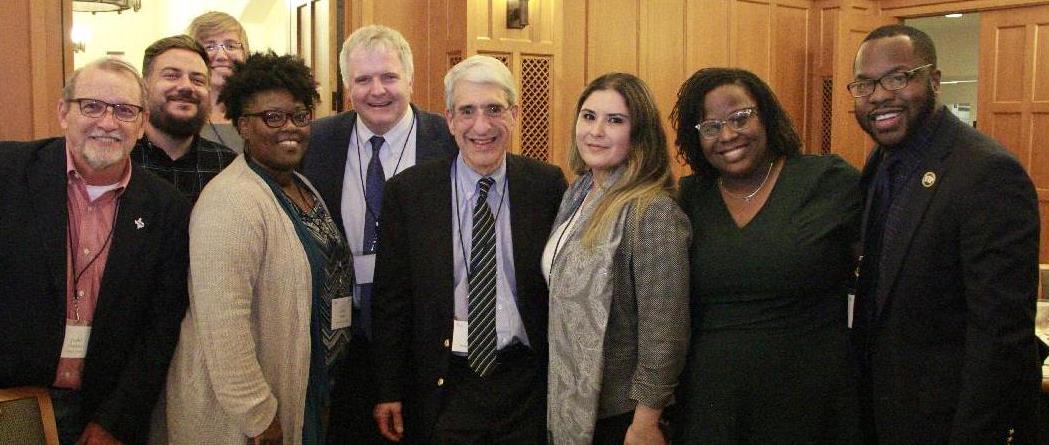
Courtesy of Kimberly Jones
The Council for Opportunity in Education held their third annual Executive Leadership Institute this Sunday, a convening of leaders discussing how issues of economic inequality affect education.
The event was sponsored by the Office of Admissions to discuss state and federal policy and focused on how to “[further] the expansion of college opportunities for low-income, first-generation students.” Until Wednesday, 65 higher education professionals will continue meeting at Yale for the institute, which kicked off on Sunday. While here on campus, they will also hear about the transformation of Yale College, from its changing demographics to the introduction of the Community Initiative at Yale — a group that serves as a community for FGLI students.
“For the last several years, COE has been partnering with elite institutions to … give exposure to our state chapter leaders to give students opportunities,” said Kimberly Jones ’00, COE vice president for public policy and communications. “Quite a few of them work directly with students who could benefit from the atmosphere of the environment and have the talent to go to a place like Yale, but they might not realize the talent they have.”
According to the official COE website, COE is a part of TRIO, a set of national college access and retention programs which “address the serious social and cultural barriers to education in America.” COE as an entity was established in 1981 and at this point counts over 1,000 colleges and agencies among its membership.
On Sunday, University President Peter Salovey and Dean of Undergraduate Admissions and Financial Aid Jeremiah Quinlan welcomed the organization during a reception and subsequent dinner. The curriculum will take place from Monday to Wednesday at the Maurice R. Greenberg Conference Center.
The curriculum includes leadership development conversations and discussion lectures about how to hold “crucial conversations,” Jones said. During the meeting at Yale, these higher education professionals will attend sessions related to state and federal policy, team building, and more, said Moira Poe, a member of the admissions office who helped organize the event. The three days will also include tours to the four cultural centers on campus as well as meetings with the directors of each center.
“Because TRIO students include many students of color, I wanted [to] be sure to showcase the cultural centers during our visit at Yale,” said Jones.
According to Quinlan, the University will host a “case study session” on Tuesday where Yale admissions officers will meet with COE mentors to talk about how Yale reviews applications. This is intended to help COE mentors become more familiar with the campus and understand how the college application review works, he said.
“We feel strongly about diversifying the Yale student body and wanted to make sure that we’re supporting these types of organizations that are doing this really important work for us,” Quinlan said. “It showcases Yale’s commitment to high-achieving low-income students and tries to make people understand that Yale is seeking talented students from all backgrounds.”
TRIO is a federal outreach and student services program designed to identify and provide services for individuals from disadvantaged backgrounds. COE consists of federal TRIO programs such as Upward Bound, Student Support Services and Veterans Upward Bound. More than 800,000 low-income, first-generation students and students with disabilities, from sixth graders through college students, are served by over 3,100 of these programs nationally, according to COE.
This Yale support comes shortly after the University’s decision to increase the threshold required to receive zero parent contribution financial aid and to reduce student effort for the students receiving these packages. COE’s values are consistent with those shown at Yale, Quinlan said.
According to Jones, the costs of hosting the event will be split by Yale and COE.
Logan Roberts ’22 — a current Yale student who was a member of Upward Bound, one of TRIO’s programs — said he is proud to see the changes that Yale has made to reach out to low-income, high-achieving students. Still, he added that he believes that there is still more to be done. According to Roberts, a necessary step is letting “first-generation low-income students have their voices magnified” and “having them take the lead on initiatives with first-generation low-income issues.”
The Executive Leadership Institute was held at Cornell last year.
Kelly Wei | kelly.wei@yale.edu







